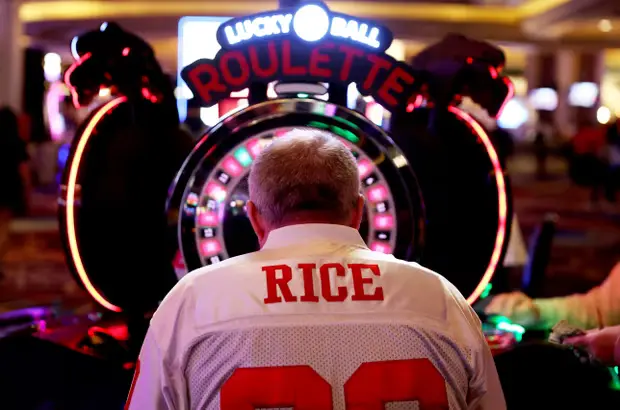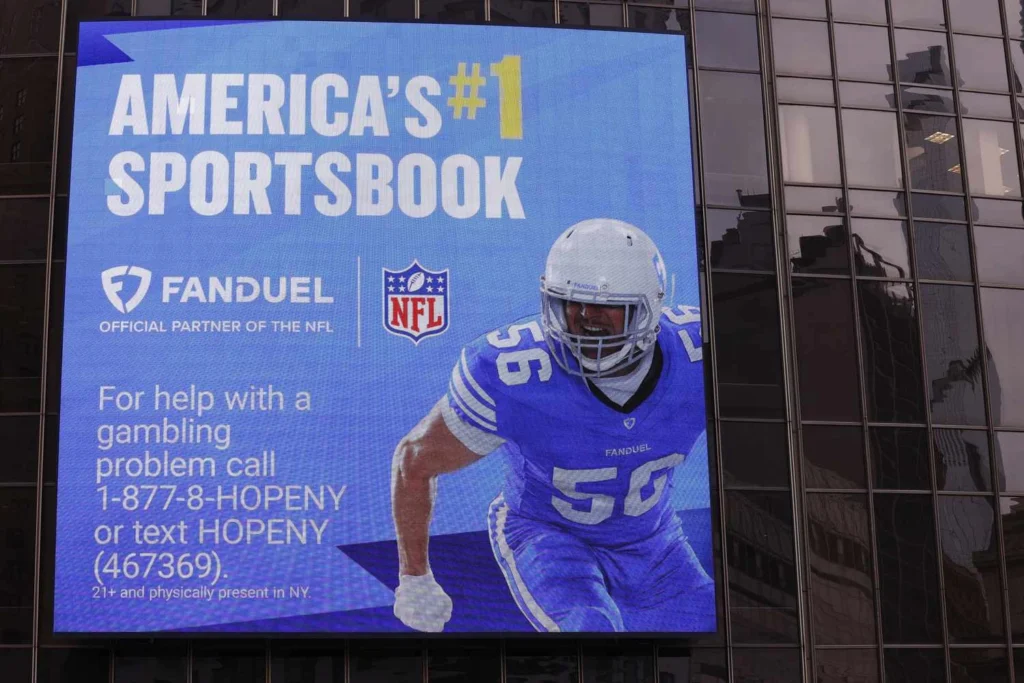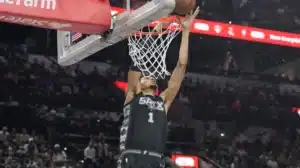From Cheers to Silence: The Hidden Side of America’s Biggest Night

As millions of Americans tuned in to watch Super Bowl, another staggering statistic emerged from the aftermath—an estimated $2.6 billion was lost in bets on the big game. This marks a nearly 50% increase from the $1.8 billion lost in 2024, a trend that experts predict will only continue to rise. But as sports betting becomes increasingly mainstream, concerns are mounting about the consequences of such massive financial losses.
Tragedy Behind the Bets: Lives Lost to Gambling Addiction
While the Super Bowl is a celebration of sports and entertainment, for some, it has become a source of unimaginable despair. Reports have emerged of individuals who lost everything—savings, homes, and even relationships—due to reckless betting on the big game. In the most heartbreaking cases, gambling losses have driven people to take their own lives, highlighting the devastating mental health toll of unchecked betting.
One such story is that of 32-year-old Mark (name changed for privacy), a father of two from Ohio, who took his life after losing $50,000 on Super Bowl bets. His wife, Sarah, shared that Mark had been lured by flashy sportsbook promotions and the thrill of live betting. “He thought he could win it all back, but it just spiraled out of control,” she said. “By the time he realized how deep he was in, it was too late.”
Mark’s story is not unique. Gambling addiction hotlines report a spike in calls following major sporting events like the Super Bowl, with many callers expressing feelings of hopelessness and despair. “The pressure to win, combined with the ease of placing bets on mobile apps, creates a dangerous environment,” said Dr. Emily Carter, a psychologist specializing in addiction. “For some, the shame and financial ruin become too much to bear.”

The NFL’s Gambling Push: How Ads and Promotions Are Shaping the Next Generation of Bettors
As the NFL continues to embrace sports betting, the league and its partners have flooded the airwaves with gambling advertisements, transforming the way fans—especially young ones—engage with the game. During Super Bowl alone, viewers were bombarded with ads from major sportsbooks, each promising big wins, risk-free bets, and exclusive promotions. These ads, often featuring celebrities and athletes, have become a staple of NFL broadcasts, appearing during timeouts, halftime, and even integrated into pre-game analysis.
But the reach of these promotions extends far beyond the Super Bowl. Throughout the regular season, gambling ads are ubiquitous, appearing on TV, social media, and even within stadiums. The NFL’s partnerships with sportsbooks have turned betting into a seamless part of the fan experience, with apps offering live odds, prop bets, and instant wagering options. For many, it’s no longer just about watching the game—it’s about betting on it.
The Impact on Young Viewers
While these ads are targeted at adults, their influence on younger audiences is undeniable. Children and teenagers watching NFL games are regularly exposed to messages that normalize gambling, often without understanding the risks involved. A 2023 study by the National Council on Problem Gambling found that 67% of young people aged 12-17 had seen gambling ads on TV or social media, and 35% had placed a bet by the age of 18.
Experts warn that this early exposure can have long-term consequences. “When kids see their favorite athletes or celebrities promoting betting, it creates a perception that gambling is harmless and even glamorous,” says Dr. Sarah Johnson, a child psychologist specializing in behavioral addictions. “By the time they’re old enough to understand the risks, many have already developed habits that are hard to break.”
What’s Next?
As the NFL’s ties to the gambling industry grow stronger, the league faces increasing pressure to address the ethical implications of its partnerships. Some have called for mandatory funding of problem gambling initiatives, while others advocate for stricter limits on advertising. For now, the ads continue to run, and the cycle of normalization persists.
For parents, the challenge is to educate their children about the risks of gambling while navigating a media landscape that increasingly blurs the line between sports and betting. As one father put it, “It’s hard to explain why gambling is dangerous when the NFL makes it look like just another part of the game.”
The question remains: As the NFL cashes in on its gambling partnerships, who will pay the price in the long run?
For those struggling with gambling addiction, resources like the National Problem Gambling Helpline (1-800-522-4700) offer confidential support. But as stories like Mark’s remind us, the stakes of Super Bowl betting extend far beyond money—they can cost lives.






